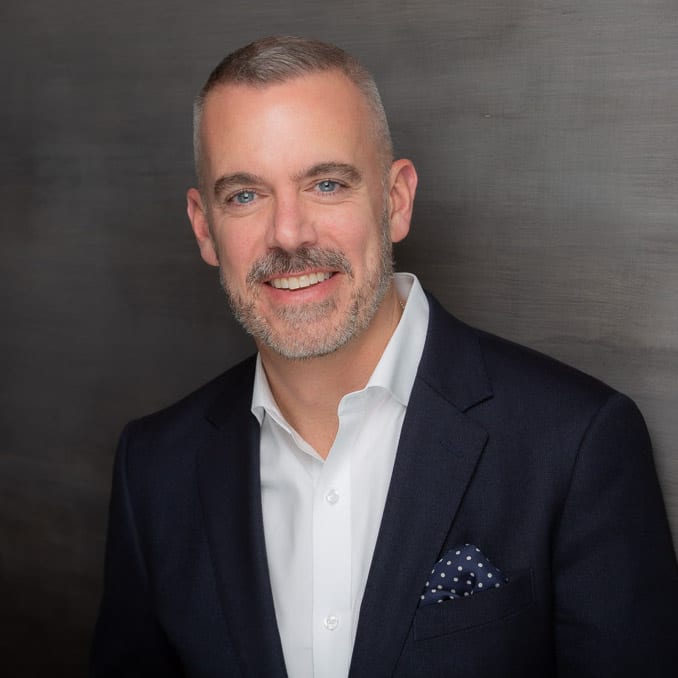I walked into Ketchum on my first day of work on October 23, 1995. Twenty-three years ago today. I had hair, and it was brown. My student loans loomed, and my wardrobe was more Chandler Bing than Don Draper. But damn, I felt lucky – not just to have a job, but to be welcomed into a company that cared as much about the way we work as the work we do. So, the 23rd is a day I always acknowledge, but there’s something sort of cool about the numerical symmetry this year. The milestone inspired me not only to look back, but to look ahead at the next few years and ask a few colleagues to predict what trends or developments they believe with shape our business, our industry, or even our society – particularly at a time when so much seems defiantly unpredictable.

Ben Therrien, SVP and Creative Director, is hopeful that brands – and the agencies that serve them – will prioritize empathy at the consumer level to provide the baseline for great creative. He sees, “… a future where brands truly embrace the need to put the customer, not themselves, at the center of their campaigns. There’s a lot of talk and support for this, but unfortunately there can be a bit of strategic amnesia when the executional rubber meets the road.”
Michelle Sobhraj, a VP in our Snacks & Beverages industry with expertise in influencer marketing added, “In the age of influencers becoming innovators with everything from their own beauty lines to fitness gear, consumers will push big brands to become just as personal if they want their business. Brands must work for it by opening up even wider to share a truly organic voice that illustrates they’re on the journey with them, leveraging PR to form these authentic narratives.” Michelle’s point of view is one of the reasons we keep recruiting influencer marketing specialists with expertise in categories ranging from food to CPG and retail, health and wellness and corporate reputation.
From one of our newer leaders in analytics, Nicole Moreo, “I think the largest trend or development will be a complete disruption of the strategic process – and open sourced strategies and systems. Currently, people work within silos and rely on linear logic. Data, technology, and platforms are slowly becoming useless if they cannot connect to each other. The age of ‘proprietary’ being a good thing is going to go away. If something does not exist on an open platform, it will eventually become extinct as no one will want to use it.” There’s that theme of interdependency again… this time, with a sense of urgency that suggests we need to democratize data even more in our collective pursuit of actual change or evolved thinking.
Ketchum partner, head of the New York marketplace and managing director of our financial and professional services industry Tamara Norman is struck by, “… the explosion and proliferation of voice-activated technology and the consumer and stakeholder experience. I think in the coming months and years, we will be relying on AI and voice-activated technology like we use the Web today to get information, to shop, to stay connected to friends. It will have countless implications for what we do, and we have to think differently now about how we help brands marry emerging technologies to what feels inherently human about the experience they provide for customers and employees. We’ve always prioritized the power of relationships, so we’re uniquely positioned to help companies do this well.” Tam’s predictions are certainly warranted when you consider MIT’s recent plans to break ground on a new 1-billion-dollar “College of AI.”
“I think one of the biggest trends or developments we’ll see in this industry in the next two years is in the evolution of collaboration. The truly appealing opportunities – as well as the pressing challenges – are simply too big or complex for us to tackle on our own,” according to Omnicom PR Group’s David Gallagher. It would be easy to assume David is only referencing the expansion of the integrated marketing “table,” and the need for communications specialists to blur the often-rigid boundaries established by swim lanes or scopes of work. But I think his perspective goes beyond that, into the critical need for interdependence among public and private organizations, government and civic leaders and those who seek to hold all of them accountable for their beliefs and actions. What better time to be a communications consultant – when clarity, credibility and transparency are more vital than ever?
Here’s one of my own observations. The talent landscape is in flux, fiercely competitive, and will present unforeseen opportunities and challenges for us all. Very few individuals walk through the door of their employer and expect to be there 23 years later. I’m not sure I did either. In fact, Gallup data confirms that 60 percent of Millennials are currently open to a new job opportunity and are by far the most likely generation to switch jobs. Dig deeper and you learn that 21 percent of Millennials in 2016 reported switching jobs within the past year, compared to roughly 7 percent of gen Xers and other non-Millennials. What those data tell this GenXer is that we must create the best employee experience possible, every day. That our consultancy’s culture, and yours – no matter the industry or company – will evolve and change and grow like a living, breathing being, transformed by every person who chooses to work there, whether that choice lasts for one year, five, or 23. We must be open to people asking for a shot, and less patient when asking for ourselves. We need to create opportunities that invite employees to show up as their true selves, their full selves – celebrating the great strides our communities have made in 23 years, while continuing to challenge the constraints and inequities that persist.
Surrounded by such insightful thinking and smart colleagues, on this October 23rd I ask myself – in the immortal words of Chandler Bing himself – “Could I BE any luckier?” On to the next 23.



